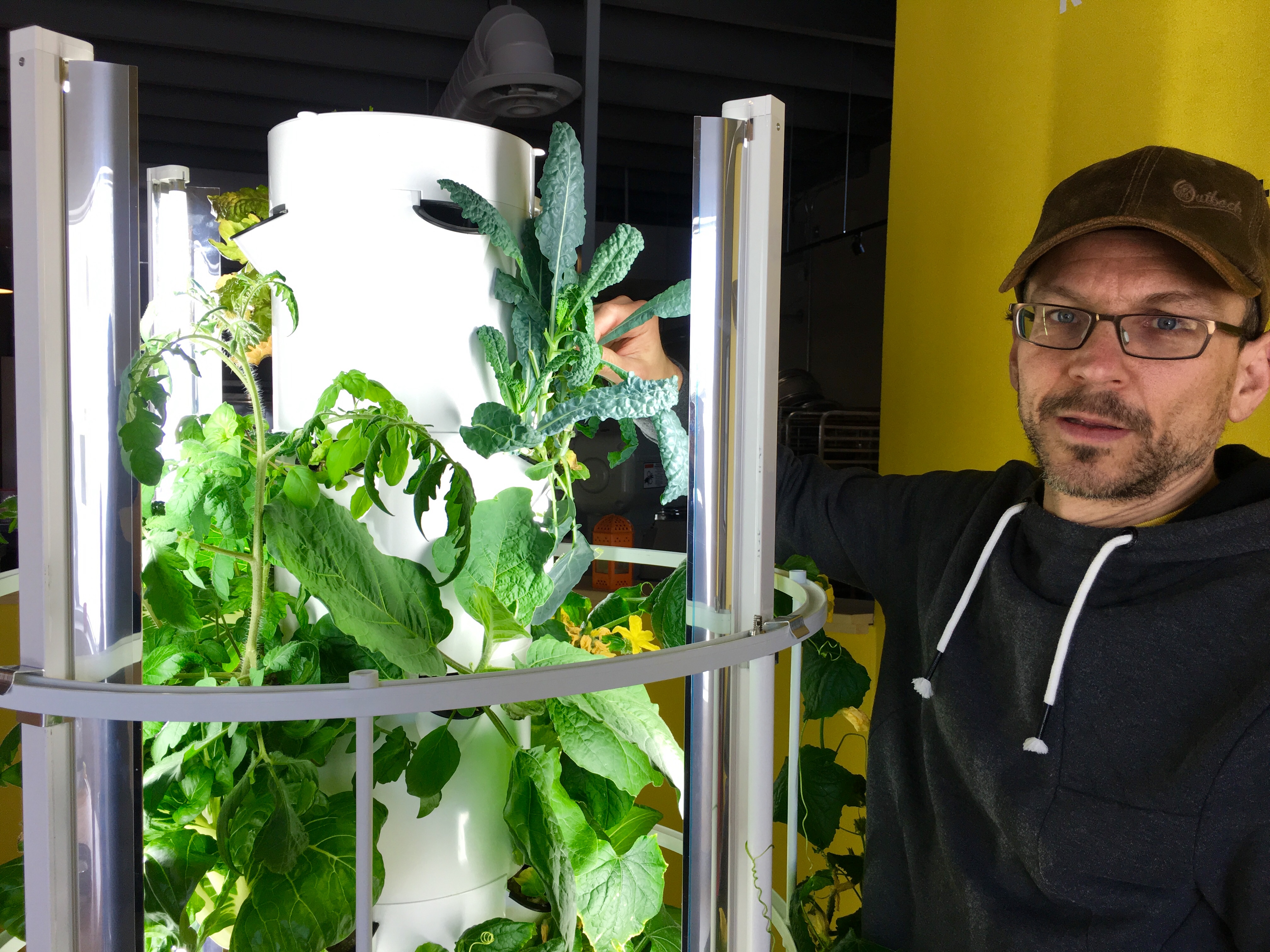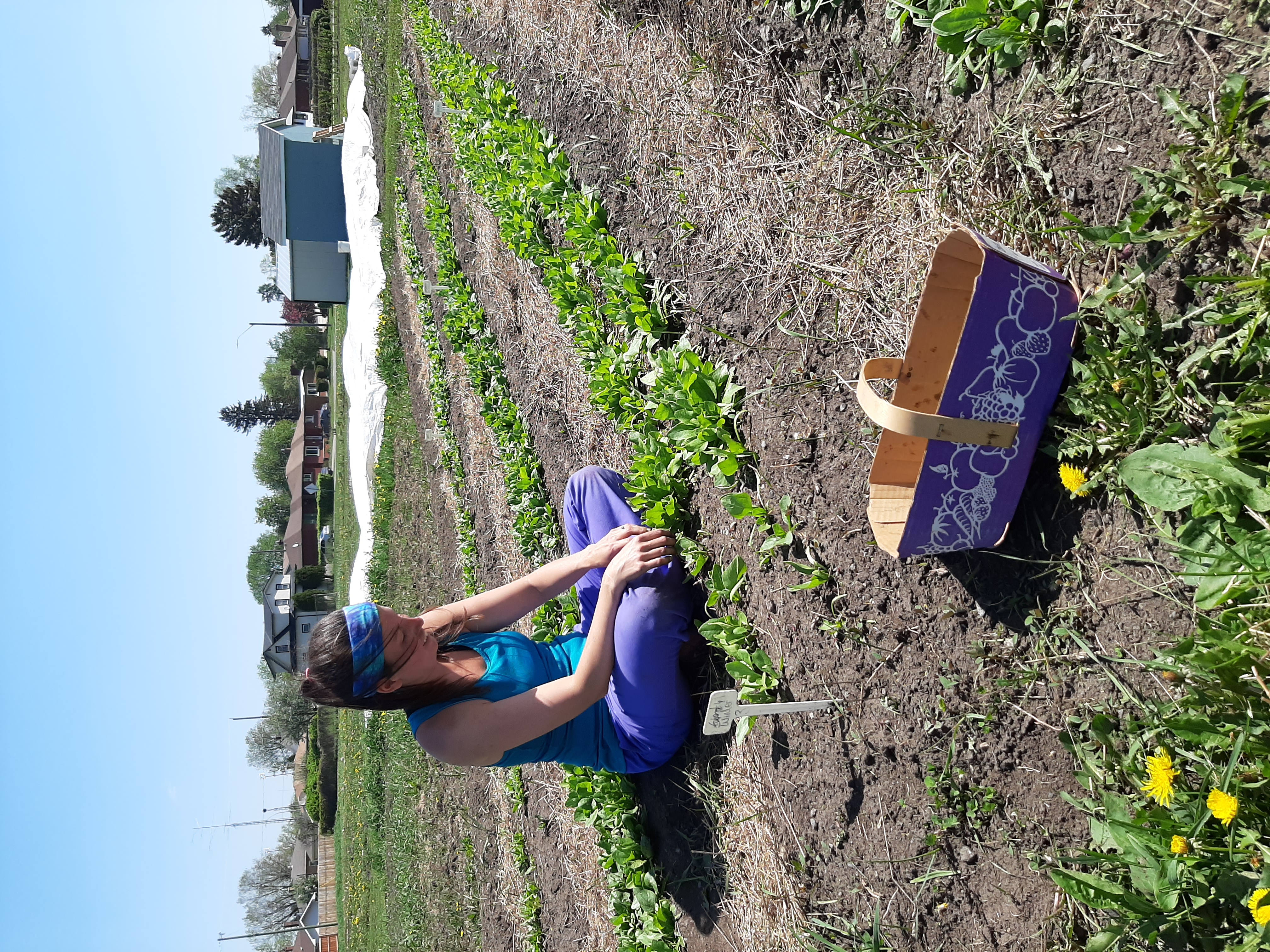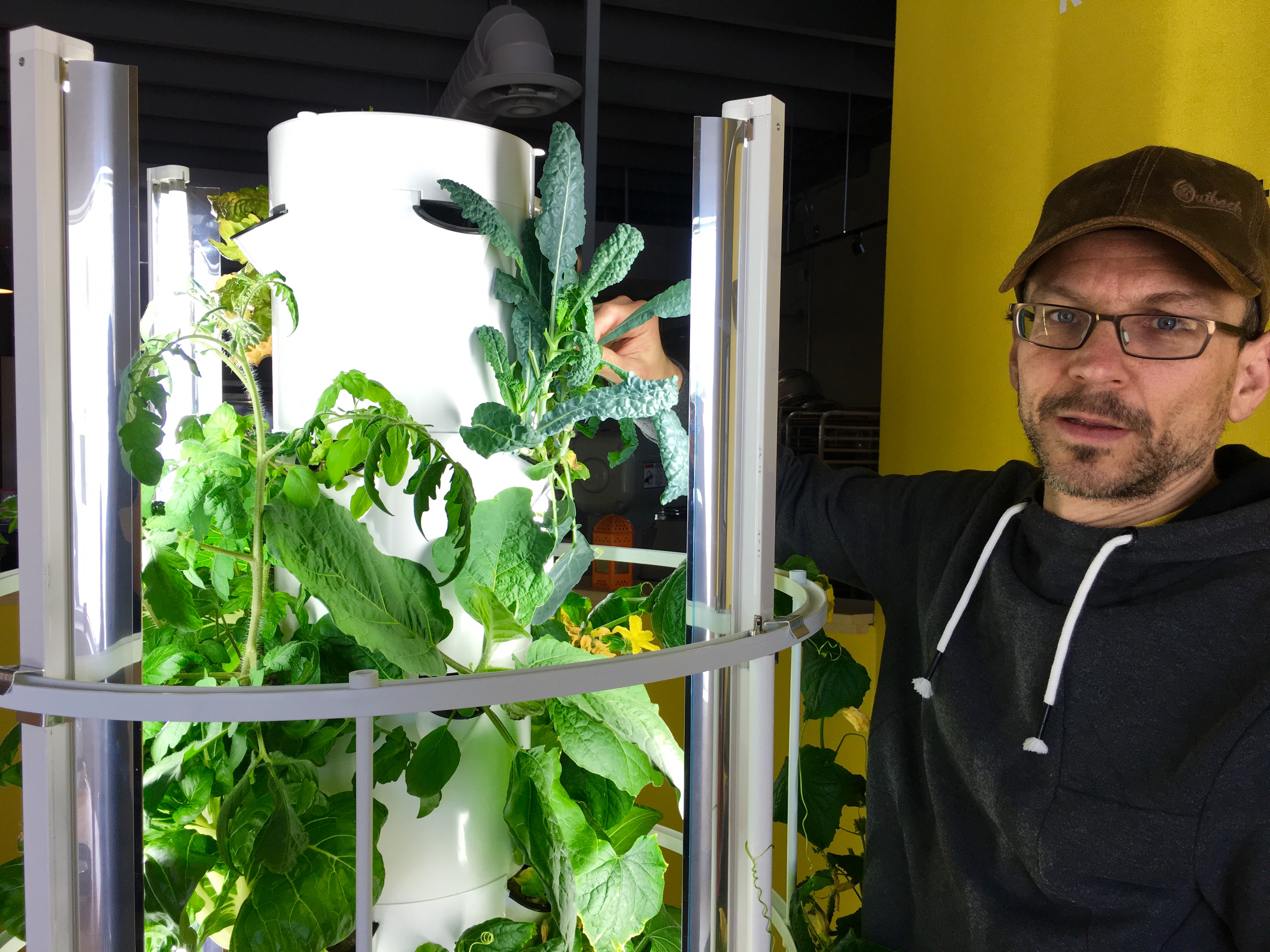Research in Action: Backyard Gardening a Small Step Towards Food Sovereignty


Photos: Dr. Charles Levkoe and Sustainable Food Systems, graduate student Rachel Portinga's research into Seed Saving.
Printed in the Chronicle Journal on October 16, 2020
By Julio Heleno Gomes
When the COVID-19 pandemic hit earlier this year, people started stockpiling not just hand sanitizer and toilet paper. They were also hoarding food and seeds. While it’s admirable that more people are growing their own vegetables, the produce from backyard gardens won’t improve access to nutritious food on a sufficiently large scale, says a Lakehead University researcher.
“Yes, grow some food. It’s a good idea,” Dr. Charles Levkoe agrees. “But it’s not a solution for food insecurity and it’s not going to make a huge dent in the grand scheme of things. Having said that, where it starts is people who are growing food are becoming part of a bigger dialogue about how we start to take back control of our food systems.”
Levkoe is the Canada Research Chair in Sustainable Food Systems at Lakehead. His work looks at the connections between social justice, ecological regeneration, regional economies and democratic engagement.
“Food insecurity — not having enough food — is the result of poverty,” Levkoe states, noting that in Northwestern Ontario, half the population of Indigenous communities lack access to adequate food. “But it can also be the result of systems and structures, of people essentially not able to control their food systems.” A lot of the decisions regarding food systems are made by government and big corporations. These have an impact on what people can grow and what farmers can plant.
“We are trying to understand some of the politics around seeds in this region,” Levkoe explains. “But it’s also to support people — whether home gardeners or farmers — to be able to control the knowledge around seeds, control information, control seeds themselves, how they can save them, how they can trade them, how they can develop new technologies that work for them.
“My goal,” he adds, “is to understand how to create more healthy, sustainable and equitable food systems for everybody.”
He is currently involved in a half-dozen projects, several linked to the Lake Superior Living Labs Network, a collaboration with universities in Duluth and Sault Ste. Marie. These hubs are involved in research projects and experiments around the broad concept of “Just Sustainability,” or social and environmental justice.
One of these projects is a partnership with the Lakehead University Agricultural Research Station, Roots to Harvest and Superior Seeds Producers. Rachel Portinga, a PhD student who served an internship with Roots to Harvest, explored how seed saving contributes to community well-being. In interviews with nearly two dozen participants, she focused on the barriers to and the opportunities for increased seed saving. “Seed access, seed saving and seed sovereignty are all essential to just and sustainable food systems and they help us adapt to climate change,” Portinga says.
The participants — residing in Thunder Bay and surrounding areas — grew “entry-level” crops such as tomatoes, peas, beans, cucumbers, squash, zucchini, garlic and carrot. Portinga’s research indicates participants are keen to improve their seed saving skills and increase access to locally adapted seeds. Seeds from California or southern Ontario are not suited to this climate and soil conditions, Levkoe notes, so the challenge is to find seeds that are compatible with the area’s unique characteristics. “Seeds, like people, are very adaptive,” Levkoe says. “Seeds adapt to different climates and soil, so it’s important we have the ability to grow and share seeds that are from this area. The solution is we need to be growing things here that are from this region.”
Portinga hopes her research can assist Roots to Harvest and Superior Seed Producers in developing supports and educational opportunities for local food growers to expand their skills to include seed saving.
“With many of these supports, I could see the Thunder Bay region having a strong community of seed savers who gather, swap seeds, exchange knowledge and generally help our community of growers be more self-reliant, be confident in their own seeds, and be proud and happy their seed networks are providing safe, locally-adapted food for families,” she says.
However, the issue goes beyond small garden plots. Along with thinking on multiple levels, we also need to understand what’s happening elsewhere and put people in contact with each other to take back control of local food systems, Levkoe says. “When we talk about food security we talk about poverty, equity and systems level things,” he says. “Food insecurity was not started in Thunder Bay, it’s not going to be solved in Thunder Bay. We can be part of a bigger solution. We need to be thinking about the structures and systems that create poverty, that create inequality. That’s where the solutions are, and the seed thing is a huge part of it.”


